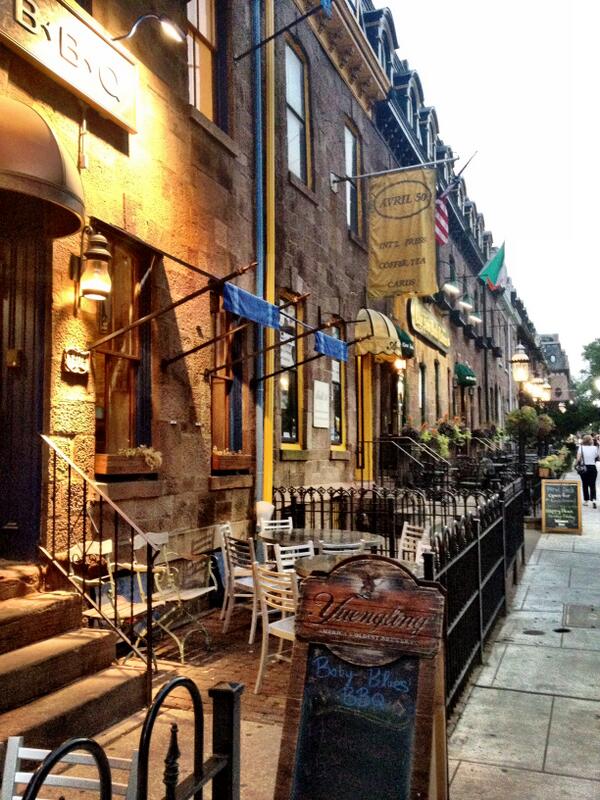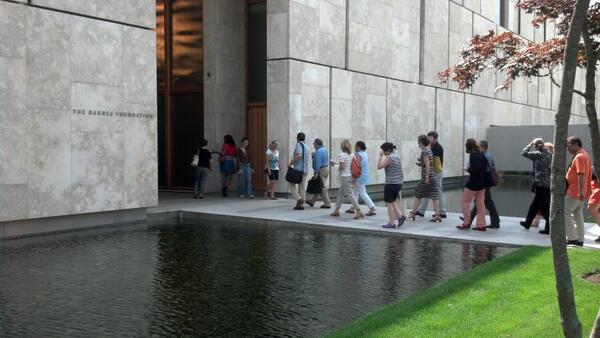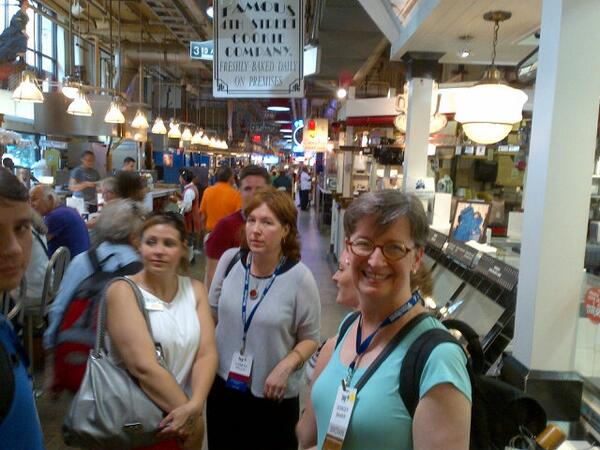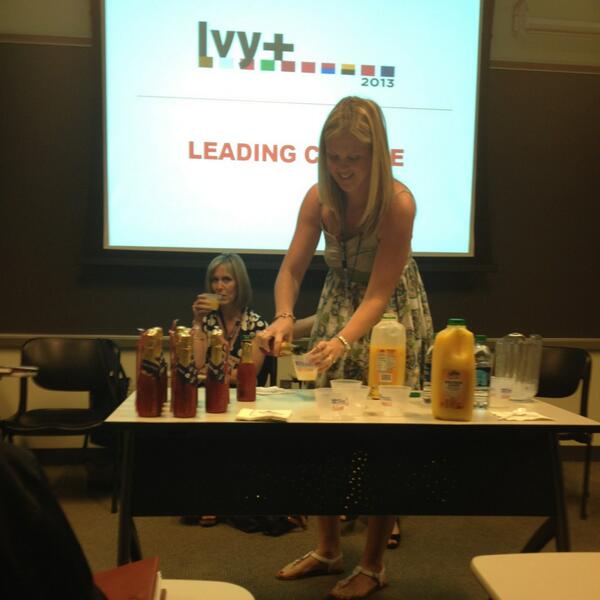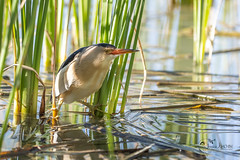Author: Professor Simon Richter (Department of Germanic Languages and Literatures)
Seven days below sea level—and we hardly got wet! Fifteen Penn alumni and friends joined me on the M.S. AmaLyra for a river-based tour of the major waterways and a sprinkling of medieval and Golden Age cities and towns of the Netherlands and Belgium. With the exception of a very wet day in Antwerp, the weather gods were unusually kind to us, but not perhaps without exacting a price. What that price was, I’ll reveal at the end of this blog. If you were with me on the tour, you know what I’m talking about.

Penn Alumni at the Keukenhof Gardens
One of the points that the tour through the Low Countries drives home is that culture and geography are inextricably linked. So much of the Dutch mentality is based on centuries long experience with the threat of water inundation, the boon of maritime trade, the engineering successes that claimed arable and habitable land from the sea, and the memory of fatal flooding. From a promontory (if you can call it that!) in the city of Nijmegen, we saw where the Waal River, a tributary of the Rhine, has a dangerous crook in it, which invariably leads to flooding in the old part of the city when the river is high. Our guide told us about the Dutch “Room for the River” project, which restores flood plains and creates additional channels in order to ease the annual and increasing threat of high waters. In Zeeland on the artificial island of Neeltje Jans, we saw that impressive monument of engineering, the Eastern Scheldt Storm Surge Barrier, part of the Delta Works. The amazing thing about this barrier is that it only closes in the event of high water associated with a major storm. The fishing industry and the ecology of the delta were not destroyed. In Kinderdijk we went inside a still functioning windmill, one of many arrayed along the dike that enclosed the Alblasserwaard and worked constantly in order to keep the polder dry. In Amsterdam and in Bruges we got onto boats specially designed for tours of the canal networks. In Antwerp we moored right by the old city and in Arnhem we could see “the bridge too far,” where Allied troops died in an attempt to penetrate beyond the Rhine. Water, water everywhere!
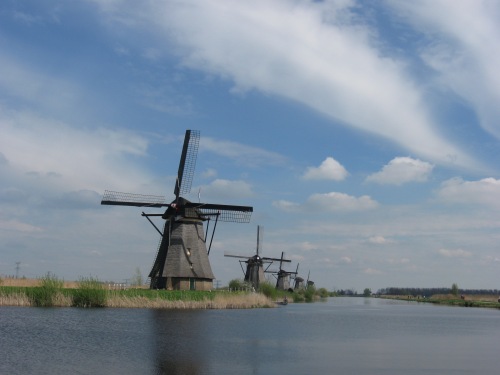
Our Gohagan tour manager was Wim, a tall (who isn’t tall in the Netherlands?!), well read and sardonic individual. He had a knack of interweaving deep cultural and historical insight with quirky confessional accounts about his own occasional bad behavior. In Nijmegen he took a group of Wisconsin alums into a coffee shop to chat with the proprietor and discuss the product! Wim was laidback and very competent—a rare and pleasant combination. As we were shuttled on a bus through a riparian landscape he explained the Dutch culture of tolerance through an allegory of the dikes. There are always two dikes along a river, the summer dike and the winter dike. If the water is behaving it stays within the confines of the summer dike. If it gets unruly it may flow over the summer dike but be held in check by the winter dike. If the range between the summer dikes is lawful behavior, then flowing over into the space between the winter and summer dikes is a matter of tolerance—for recreational drug use, for prostitution, for euthanasia. Not legal, but tolerated up to a point. Cross the winter dike and you have a catastrophe on your hands. Break the law past the limit of what is tolerated and you go to prison.

The Delta Water Works in the Netherlands
For my part, I was captivated by the raging debate in Dutch society about the song that had been commissioned for the inauguration of the new Dutch king, William Alexander. The Dutch said that the song had been “poldered.” What they meant was this: the Dutch take pride in their level society, where ostentatious wealth and stratified social difference are avoided at all cost. Society is like a polder. People have to work together, without regard for difference, like the pumps and the Delta Works system that keep so much of the Netherlands dry. An unfortunate side effect, however, is that this sometimes means playing to the lowest denominator or being inclusive—of styles of music, means of expression, types of voice and demographic variety—at the cost of aesthetic value. A vocal minority abhorred the song. It sounded like a bad Walt Disney anthem. But William Alexander took the controversy in stride. Like his mother Queen Beatrix before him, he too will be driven around not in a Rolls, a Bentley or a Daimler-Benz. He’ll be satisfied with his Ford.
Is water all we saw? Of course not. I have strong memories of the newly opened Rijksmuseum and the brilliant Dutch master paintings we saw there. The next day we were in the Kröller-Müller Museum, a little known, out of the way gem, with an amazing and large Van Gogh collection. One of the highlights for me was the day we spent in Bruges, an intact medieval city (with more than a thousand buildings constructed during the middle ages). Astonishing cityscapes everyway we looked, celebrity chocolate with funky flavors (fried onion, wasabi, cannabis!), and a lovely luncheon with five of the wonderful Penn alums. The Belgian stew made with the local beer warmed us because, yes, it was cold!

Picturesque Bruges
And this is where the weather gods come into the picture again. Many of my fellow travelers told me the major reason for joining the tour was to see the tulips in Keukenhof. Normally they would be at their peak. But it had been a cold spring and the flowering bulbs were off by about four weeks. We did see massive beds of lilacs and daffodils and other early bloomers and there were—some consolation—many blooming tulips in the pavilions. I could sense the disappointment, but I have to say that we bore it with equanimity. Back in Amsterdam that afternoon, a number of us joined a group of younger alumni now residing in the Netherlands, members of the Dutch Penn Club, on a rooftop lounge overlooking the city, the harbor and our boat. It was the night before the inauguration and the city was awash in orange, the color of the royal house.

Just beginning to bloom: the gardens in Keukenhof.

My fellow Penn travelers were great companions. I enjoyed many long and substantive conversations about history, culture, ecology and many other topics. We also had a lot of fun. Our redoubtable Wim pulled out a Don MacLean CD as we left the Kröller-Müller Museum and fed it into the bus’s player so that we could hear MacLean’s lament for Vincent. It took us back to the early 1970s and before long a number of us were singing “Bye, bye, Miss American Pie, took my Chevy to the levee, but the levee was dry.” Not where we were, Mr. MacLean. There wasn’t anything dry.
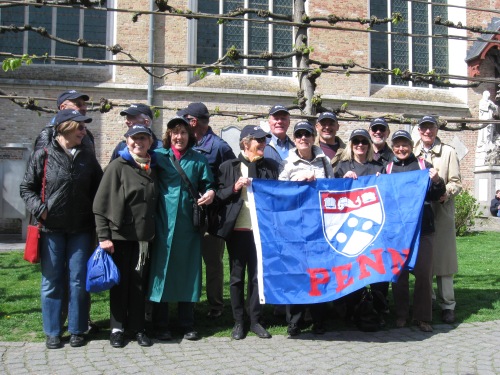
(If you’re interested in learning more about Penn Alumni Travel and our 2013/14 tour schedule, please click here.)



